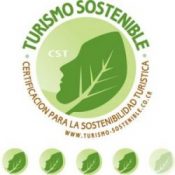The White-nosed Coati (Nasua narica), also known as the Pizote, is a species of coati and a member of the Procyonidae (raccoon family) and is commonly seen in Costa Rica. With Bahia Aventuras you can see the White-nosed Coati during your Corcovado National Park full day tour.
White-nosed Coatis inhabit wooded areas (dry and moist forests) of the Osa Peninsula and Corcovado Park. They are found at any altitude from sea level to 3,500 m (11,000 ft). They are omnivores, preferring small vertebrates, fruits, carrion, insects, and eggs. They can climb trees easily, where the tail is used for balance, but they are most often on the ground foraging. Their predators include boas, raptors and hunting cats like the jaguar and puma that inhabit the Corcovado National. They readily adapt to human presence; like Raccoons, they will raid campsites and trash receptacles. They can be domesticated easily, and have been verified to be quite intelligent.
White-nosed Coatis are primarily diurnal, retiring during the night to a specific tree and descending at dawn to begin their daily search for food. Adult males are solitary, but females and sexually immature males form social groups. They use many vocal signals to communicate with one another, and on our tours you might hear them. They also spend time grooming themselves and each other with their teeth and claws.





Leave a Reply